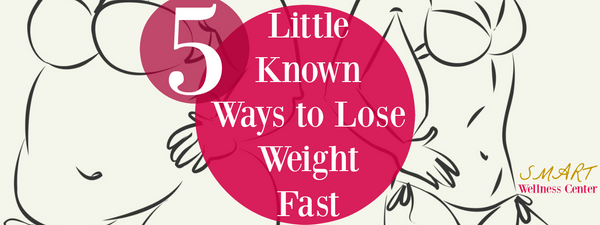
Small intestinal bacterial overgrowth (SIBO) occurs when there is an increased number and/or abnormal type of bacteria in the small bowel.
Yuck. I suffered with this ailment and it’s no fun. I got rid of SIBO and so can you. Unfortunately, almost 100% of people who take antibiotics for SIBO have one or more re-occurrences. There must be more to SIBO then conventionally believed…
SIBO is often under diagnosed because its symptoms are similar to other digestive issues. Gas, bloating, and fatigue are just some indicators of SIBO. SIBO is intricately linked to the state of the brain and motor complex nerves along with digestion.
More on that in a bit…

The bacteria present in SIBO are those typically found in the colon. These are bacterial species that ferment carbohydrates into gas. The hypothesis follows that migration of bacteria from the large intestine to the small intestine leads to SIBO symptoms like bloating, abdominal discomfort, and changes in stool.
Other SIBO symptoms include:
Do you experience any of the symptoms mentioned above?
SIBO is common even in those considered healthy. In healthy people, SIBO has been described in up to 12.5% by the glucose breath test, 20–22% by the lactulose breath test and up to 35% by the 14C d-xylose breath test. (1) It’s possible that you are walking around with SIBO and don’t even know it. If you suffer from a GI condition, you’re at greater risk.
Researchers suggest that individuals with gastrointestinal conditions have increased bacterial counts compared to healthy people. (1) This is a crucial point. If you struggle with gut issues—IBS, IBD, celiac, heartburn, or constipation— it is highly likely that you may have SIBO.
In fact, a study of 202 patients with IBS showed that 78% had an abnormal lactulose breathe test suggesting SIBO.
In a randomized blind study 84% of IBS patients had SIBO compared to 20% of healthy individuals. Yet another study showed 65% of IBS suffers had SIBO. (2)

SIBO is detected alongside:
From a model of digestion, one of the mechanisms causing SIBO is inadequate hydrochloric acid. In fact, 50%-80% of people who take antacids have SIBO. Even if you don’t take antacids, hydrochloric acid production decreases with age and should be supplemented—if you want to avoid rotting food and premature aging.

You may be wondering what is hydrochloric acid? Why it is important?
Hydrochloric acid is stomach acid and it helps you digest food, especially fats and proteins. You need adequate hydrochloric acid to absorb protein, calcium, vitamin B12 and iron.
But that’s not all.
Hydrochloric acid suppresses the growth of ingested bacteria, thereby limiting bacterial counts in the upper small intestine. Diminished acid production (hypochlorhydria) is a risk factor for SIBO, and can develop after colonization with Helicobacter pylori.(2)
I take a professional grade, live source of hydrochloric acid, Premier HCL to make sure I digest my food and maintain a proper, highly acidic stomach that destroys any ingested bacteria.
Insufficient digestive enzymes can also cause SIBO. Just like hydrochloric acid, digestive enzyme production decreases with age. By 70 years old, you produce only about 30% of the enzymes you need to properly digest your food. Yikes! This is a serious problem. For this reason, I take digestive enzymes, Premier Digest, before I eat especially cooked foods or in restaurants. My digestive enzymes are a live, plant source that work across the spectrum— fats, carbohydrates, protein, and dairy.

Another enzyme formula that I love which targets the stomach in a slightly different way, GastroVen, is a great addition to your digestive improvement arsenal. Learn more about it here.
Rebalance your gut ecology with the products mentioned above. If SIBO is driven by these two primary digestion factors, SIBO is toast. As a bonus, I’m including my protocol when you purchase these digestive products so that you can see exactly how I used them.
To grab my Get Rid of SIBO Digestion Kit & My Bonus Protocol click here.
There's a second more advanced kit that incorporates the brain part of SIBO too(described below in more detail).
There’s a second part to the story of SIBO which involves the brain and nerves.
When SIBO is present often something is impacting a group of nerves in the intestine called migrating motor complexes. These nerves control motor utility and bowel function. They also control a valve that separates the small intestine from the large intestine.
When migrating motor complex nerves are injured or dysfunctional, you lose the ability to move food through the intestine and you lose control of the valve that keeps bacteria separated between the small and the large intestine; thus, the bacteria from the large intestine gets into the small intestine and viola SIBO.
How do the migrating motor complex nerves get injured or dysfunctional?
A weakened immune system or inflammation in the intestine such as IBS (Irritable Bowel Syndrome), Celiac, etc., and uncontrolled diabetes can destroy these migrating motor complex nerves leading to the loss of motility aka the movement of the bowels.
Brain trauma or traumatic brain injury also reduces the movement of the bowels. In fact, research has demonstrated that two hours after a brain injury, an individual loses intestinal contractibility which is the underlying mechanism of SIBO.
Once the bacteria from the colon migrate to the small intestine, they ferment sugars such as those found in legumes, grains, prebiotics, probiotics, fibers, and high fructose foods. An individual who eats these foods experiences severe bloating and distension which further opens up the valve that separates the large and small intestine, allowing more bacteria to infiltrate the small intestine.
The individual starts to adhere to a strict FODMAPs diet in order to avoid gas and discomfort. This restrictive diet doesn’t contain enough prebiotic foods that are necessary to make short chain fatty acids which are important for brain function. Brain function decreases and brain inflammation increases.
This becomes a vicious cycle that impacts the brain (which controls the migrating motor complex nerves), further distressing the immune system and the guts. A person doesn’t know what to eat, how to stop the cycle, and becomes chronically ill.

Did the SIBO come first or a brain trauma/inflammation?
It could be the one or the other but usually the second follows. Research has demonstrated that two hours after a brain injury, an individual loses intestinal contractibility which is the underlying mechanism of SIBO. This leads to leaky gut and negative reactions to foods. Research has also shown that inflammation in the gut, inflames the brain.
If that wasn’t bad enough, SIBO has been discovered in the presence of various liver diseases. Below is a figure taken out of a paper published in Gastroenterology & Hepatology in 2013 that illustrates the detrimental effects of SIBO on the gut and the liver.

The figure illustrates SIBO as present in various liver diseases, altering gut microbiota, impairing bowel movements, releasing inflammatory agents into circulation, allowing the translocation of bacteria and other toxins, and promoting leaky gut.
In this section, the focus is on advanced ways to enhance brain health through nutrition to get rid of SIBO. But not only.
By doing so, you also stack the deck against neurodegenerative diseases such as Parkinson’s, Alzheimer’s, and multiple sclerosis along with symptoms related to impaired brain and nerve functioning.
Neurodegeneration begins at the cellular level and it is driven by two main processes—oxidative stress and excitotoxicity. Chronic low grade infection is often overlooked and it can lead to the destruction of neurological faculties as well.

What are some neurodegenerative agents to avoid?
Removing high dietary intake of simple sugars especially fructose is a wonderful brain health move. Individuals with SIBO should avoid lactose, a sugar found in milk and other dairy products.

Why is sugar trouble?
When a protein molecule binds with a sugar molecule this process is called glycation. When glycation occurs proteins are more vulnerable to free radical damage which can then form AGEs (advanced glycation end products) that interfere with tyrosine and dopamine. AGEs then signal others cells to produce the powerful free radical, peroxynitrite, which can worsen neurodegenerative processes by damaging cellular DNA and mitrochondrial DNA.
Moral of the story?
Avoid simple sugars/carbs especially those hidden in processed foods and soft drinks— cookies, crackers, chips, soda, etc. This stuff isn’t good for you anyway. Eat real food. To get more dietary details that help you lose weight and get rid of SIBO, click here.
Exposure to the following neurotoxic agents initiates neurodegeneration:
These deplete the body’s antioxidants while increasing oxidative stress and excitotoxicity. Most of this stuff is found in processed and packaged foods.
What’s the solution?
Eating clean is just one part of the equation. Unfortunately, it is not enough. Research shows that the antioxidant content in U.S. food has fallen by 50% in last 25 years. It is thus impractical to assume that all antioxidant or even nutrition needs are met by typical food. The best strategy is to consume nontoxic nutraceutical agents to protect against nutrient depletion and buffer the effects of neurodegeneration.

Premier NeuroVen. Premier Neuroven is support for the entire neurological system. It contains phospholipids which are important for the construction of cell membranes, nervonic acid that’s a vital nutrient for brain development, L-carnosine which promotes nerve growth, and more.
Premier NeuroVen supports:
Asta-Complete-FX. Asta-Complete- FX contains astaxanthin, a natural algae extract that is a potent carotenoid antioxidant which helps neutralize free radicals. It can cross the blood-brain barrier and protect the brain and nervous system. Interestingly, astaxanthin does not oxidize after it does its job.
Premier Turmeric. Nearly 200 scientific studies have documented the amazing immune and antioxidant properties of curcuminoids. Curcumin in turmeric has many protective functions: counters advanced glycation end products, cholesterol oxidation, central nervous system inflammation, and quenches a broad range of free radicals. Premier Turmeric helps promote healthy digestion, peristalsis, and decreases gas.
Premier CoQ10. CoQ10 is known as coenzyme Q10 or vitamin Q. It is a powerful antioxidant that helps protect the body from free radicals. Vitamin Q plays a vital role in energy production. It protects dopamine producing neurons and defends against mitochondrial damage from excitotoxin exposure.
Premier DHA. DHA is a key Omega 3 fatty acid known as docosahexanoic acid. It supports the brain, nerves, eyes (extensions of the brain :), and heart. It’s helpful and vital for coordination, learning, memory, and healthy moods. DHA protects from neurodegeneration and is recommended to be taken with an effective antioxidant (like the ones mentioned above). This DHA is derived from marine algae rather than fish. If you would like a high quality fish source EPA/DHA, click here.
Max B-ND, Premier. Max B is a vitamin B super hero. Max B is derived using probiotic bacteria to produce natural vitamin Bs in their potent end chain coenzyme forms. Vitamin B blocks glutamate toxicity, decreases homocysteine levels, and boosts mitochondrial energy. It supports mood, the proper development of the nervous system and brain, and has powerful anti-stress effects.
To get all the products discussed in this article and my bonus on how to use these, click here.
This discussion is hopefully driving home the point that the entire SIBO phenomenon isn’t isolated to simply the small intestine. Digestion needs to be optimized and alongside it brain activity and brain nutrition. Start implementing. I’m including my bonus protocols for those who want to start using the live source, professional grade products I mentioned in this article. You have nothing to lose but SIBO. To your health!

Probiotics are not a new concept. In the early 20th century Elie Metchnikoff, a Nobel Prize recipient, was very interested in the ageing process and expressed his fascinating view of ‘intestinal auto intoxication’: the large bowel is a source of toxic substances such as ammonia and amines that are absorbed from the gut and circulate in the blood, damaging the nervous and vascular systems...

The brain and the gut are powerfully connected and share a bidirectional communication channel. Understanding this interconnectivity is essential for optimizing brain and gut health.
A few powerful brain-gut interdependence examples...

What does digestion have to do with weight loss? Everything.
If you do not digest your food properly (which most people cannot do well), any chemical toxins present in the food you eat are absorbed from the small intestine through the hepatoportal artery and intoxicate the liver. The liver sends this trash out in adipose tissue aka fat. And the body will keep building out fat as more and more chemical toxins are consumed. The result: weight gain...
Emily Pobratyn
Author